How to Remember Passwords
Remember your password

Try using your other passwords. People usually don't forget all their passwords at once, so it's a good idea to try out other personal passwords that you tend to use frequently. Although web users now often use separate passwords for different accounts, some passwords are often used for multiple accounts.
If you're not sure, maybe you didn't really forget your password, but just forgot a certain password that corresponds to an account you need to log in to.
Don't forget to try old or previously used passwords as well, if you're trying to log in to a fairly old account.

Try entering a specific password. No password search is complete without trying to use the most obvious and common passwords. This is especially true if you don't remember what the password is and you're trying to guess it all over again. Try to think of the clearest, most intuitive password strings you could have chosen. Passwords like 'Passwords,' 'Cheeseburger,' or your full name are easy for hackers to steal, and if you think you might have set one of these as default, you'll at least set it for yourself. yourself an easy-to-break code.
Some of the most common passwords include '123456', 'abc123', 'qwerty' and 'iloveyou'. Birthdays are also popular.
If you think you might have been careful enough to add a passcode to a weak password, try checking out some basic encryption. For example, if you might have used your name or year of birth in your password, try spelling them backwards.
Most passwords today require at least one number. The most common number addition is adding a '1' to the end of the password; The second most common number addition is adding a person's birthday (e.g., 1992).

Remember your life at the time of password creation. In many cases, people will create passwords based on their inspiration from life and surroundings. If you have a rough idea of when the account and password were created, try to recall that time and pick out what important factors might influence your password choice. Did you find a life partner at that time, or a pet? Taking a moment to remember the past is helpful if you're trying to remember something specific like a password.
Some other examples include your hometown, favorite sports team, or your best friend's name.
Stressing yourself out trying to remember passwords will get the opposite result from what you want. The human brain has a harder time recalling information under duress, so make sure you relax, breathe, and remind yourself that this isn't the end of the world.
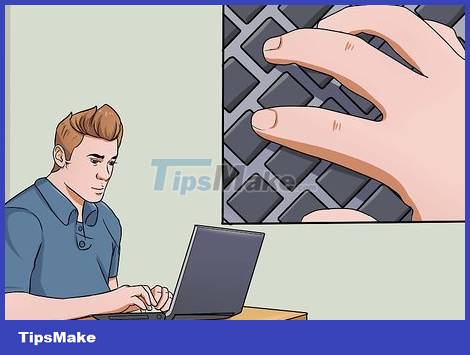
Make sure you have entered each character correctly. Whenever you enter your password, make sure you're entering it correctly. Something as simple as turning on the Caps Lock key will make a correct password incorrect and run the risk of what you think is the correct answer being completely wrong! Since the password is usually displayed as an asterisk on the screen, it is important that you enter the password carefully if you are not sure about it.
This is especially important when you create your password for the first time. If you accidentally confirm a typo in your password, you have little chance of getting it back in the future.

Meditation. While this may seem like the hardest thing to do when you're stressed about losing access to your computer or accounts, relaxing with meditation is an effective method to restore your memory. Sometimes, the most effective way to remember something is to try not to think about it. Take a deep breath, and gradually release the stress from your mind; Worrying or getting angry doesn't get you any closer to finding your password, so instead you should focus on being as relaxed as possible.
Although true relaxation is unlikely if you just think of it as a way to remember your password, you'll probably remember it once you're in a clearer state of mind.
Jogging or exercising also helps a lot. The mind tends to function much better when the body is moving!
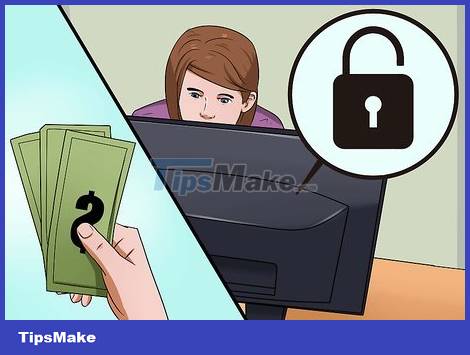
Purchase and use a password cracker. There are a number of programs available specifically designed to retrieve lost passwords. Although this is often associated with hacker culture, legitimate businesses recommend using these programs as a way to regain access to computers. Download the software from another computer, put it on a CD or USB drive, and plug it into the computer. A password cracking program will immediately infiltrate your system and retrieve account data. The process is automatic and extremely fast, so if it's the operating system password you're worried about, this solution can be a quick and relatively inexpensive one.
Password crackers are only designed to crack operating system passwords, such as Windows user accounts. Online accounts such as email cannot be retrieved this way.
While it is completely legal to try to crack your password with this type of software, using it to steal someone else's account will get you into serious trouble and is not recommended.
Get your data back
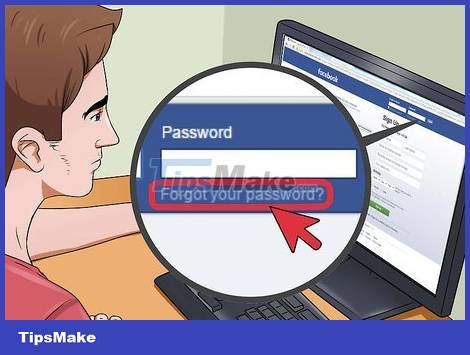
Try using the "Forgot my password" option. If you've tried and can't directly remember your password, you'll probably never get it back. Luckily, that doesn't mean you've lost the account involved. Most websites will have a 'Forgot password' option for this purpose. Click this button and follow the steps to reset your password.
If it's a non-email password (like Facebook), resetting the password should be pretty easy. An automatic confirmation will be sent to your email, from which you will reset your password and begin creating a new one.
Some email services (like Hotmail) offer the ability to connect them to another email account to reset passwords. If you have another email account and have done this, resetting your password will be as easy as with any other non-email account.
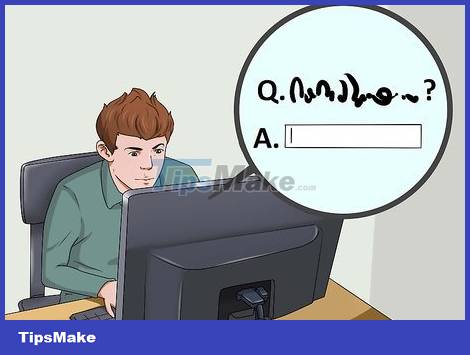
Answer the secret question about your account. If it's an email account you're trying to access, and you haven't linked it to a separate email address, the other option to reset your password is by answering your secret questions. Many email accounts will force you to answer personal questions (for example, the name of your first pet) as a last resort if you forget your password later. Click on the 'Forgot my password' button and answer the questions whenever required.
Although this will not bring back your password, it does provide an opportunity to help you retrieve your password.
Unfortunately, many people don't take answering secret questions seriously, and some people can forget their answers sooner than their password!
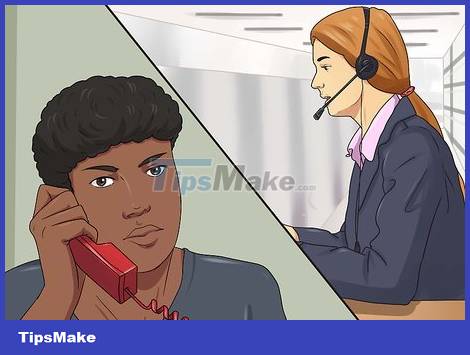
Contact the service provider directly. While contacting the company that hosts your account won't help you get your password back, they can help you regain access by resetting your password. Although you will have to provide certain proof of your identity, some services will allow you to regain access to your account by calling or texting them.
Remember that the verification process can take some time even under the best of circumstances, so patience is a must when you choose this route.
Prevent password loss in the future

Try to create an easy-to-remember password. There are many reasons why you forget your password in the first place. Perhaps you came up with a password on the spot, or you made it so complicated that you can't fully remember it. While creating a hard-to-guess password is an essential security step, what matters most is how easy it is for you to remember. Coming up with a unique but memorable password may be difficult for you, because obvious answers (like the name of a place or person) are too easy to guess.
Try combining a few distinct words that are unforgettable. For example, your pet's name is a weak choice, but pairing it with something completely unrelated, like your favorite food or comic book character, is a strong password that will make hackers spin. .
When you create a password, most sites will have an indicator that tells you how strong your password is. While these are the best virtual tools, you'll want to at least aim for an average password. Adding symbols and numbers to your password is a smart way to improve security.
Another popular trick you can use is to invent easy-to-remember acronyms. Write the first letter of each word in a memorable sentence, thereby creating a nonsense word. For example, the sentence "Friday is my favorite day of the week" would become 'Tslnytcttt'. Likewise, "Free Jazz is my favorite music" would become "Jmpllnytct". This can be applied to almost any sentence you can think of, as long as it has enough words to satisfy the password's minimum number of characters - usually 8 characters.
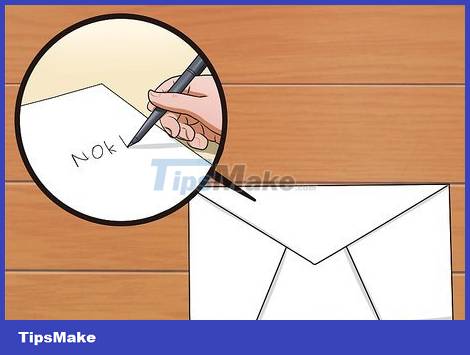
Write down your passwords and keep them in a sealed envelope. Even if you write your passwords down on paper, you should be able to remember them pretty well, write down your passwords and put them in a safe place if you think you'll forget them at some point. Seal the envelope, and do not mark it or mark it as something misleading. This way, if someone accidentally finds it, they won't know its importance.
If you're really worried that you'll lose your envelope, consider giving the envelope to a trusted friend or relative. However, this is not recommended, as it means you give up sole control over your password and almost reveal your personal information.
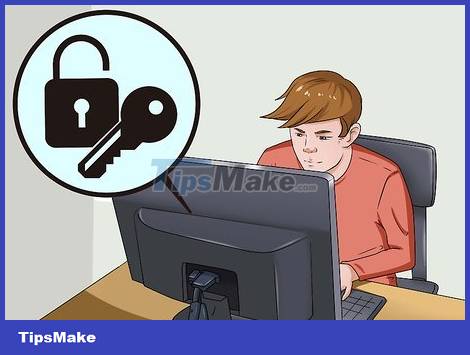
Use a password manager app. Especially if you're using different passwords for each of your different accounts, you'll probably find it difficult to remember them all. Luckily, password management software is available that will save your data for you. However, most password management software is expensive - usually from 500 to 700 thousand VND. However, you might think the extra security is worth it if you're worried about forgetting or risking it being stolen by hackers.
Because password management apps essentially do the password storage for you, you can afford to have more complex passwords without having to worry about remembering them.
As a free alternative, you can create an encrypted file on your computer with all the passwords on it. That way, you'll only have to remember one of them.
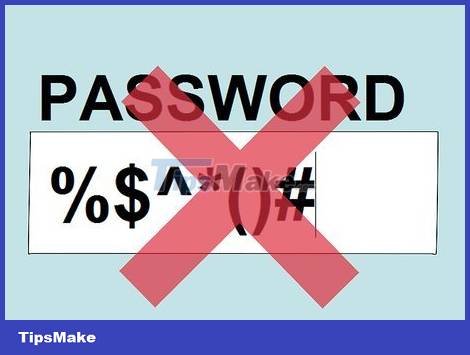
Keeping your password is as important as the information that needs to be protected. Passwords for banking information should have higher priority than passwords for jazz blogs, but as a general rule, you want to make your password harder to crack depending on how important it is. account in your life.
At the same time, passwords that contain Roman symbols or numbers can make them harder to guess, it can also make them harder to remember. The trick is to focus on the balance between complexity and memory. Don't choose a password that you don't think you'll be able to remember on a whim, and if you do, make sure to keep it written down somewhere where it's unlikely to be misplaced or stolen by someone. see.
You should read it
- ★ Ways to break passwords, remove passwords of PDF files most effectively
- ★ How to review saved wifi passwords on Android devices
- ★ How to Manage Your Passwords with KeePass
- ★ How to manually enter passwords on iPhone, iPad for applications, websites
- ★ The 'deadly' flaw when managing passwords online